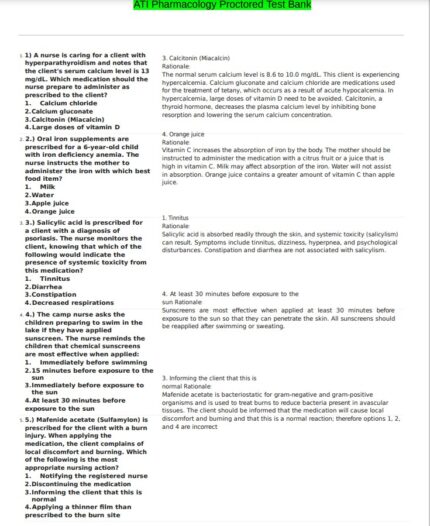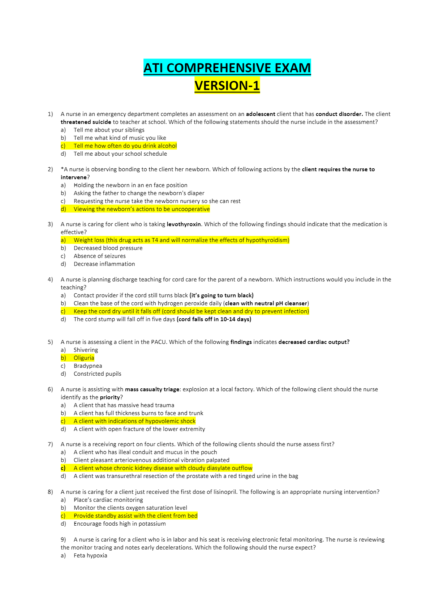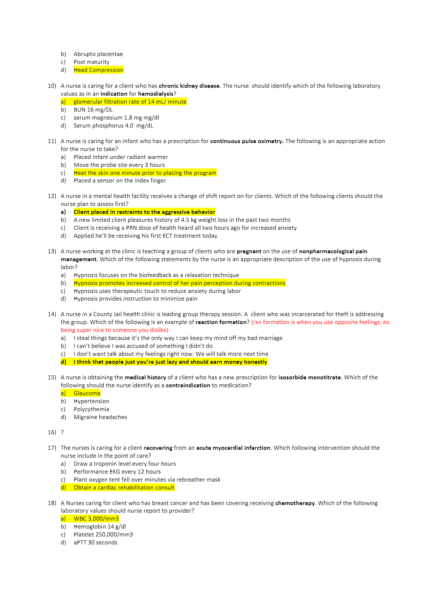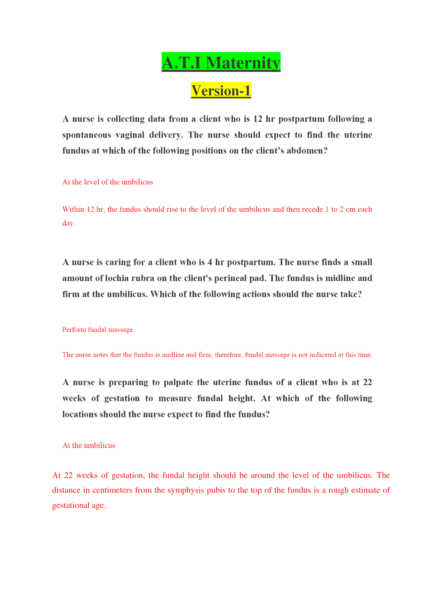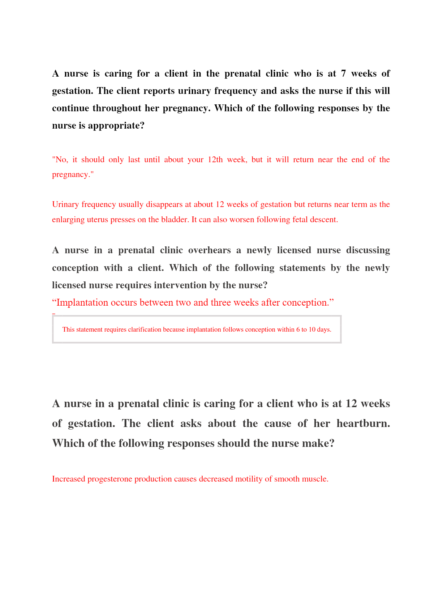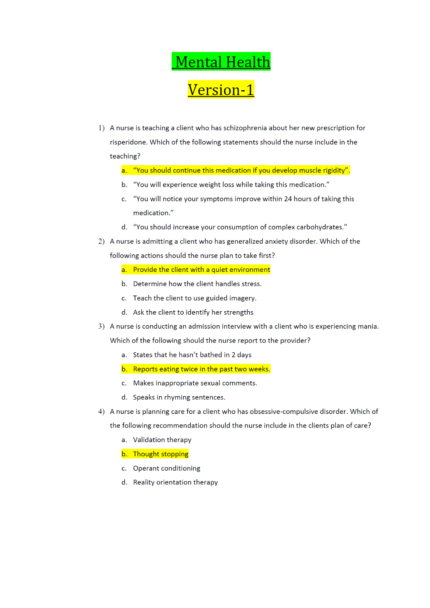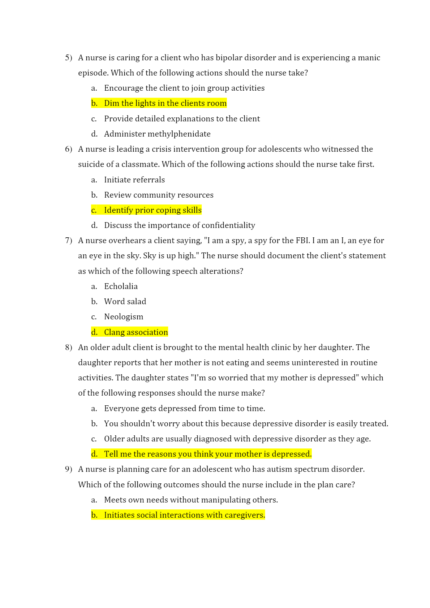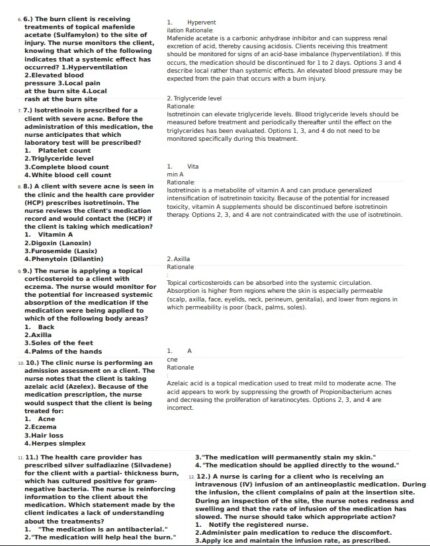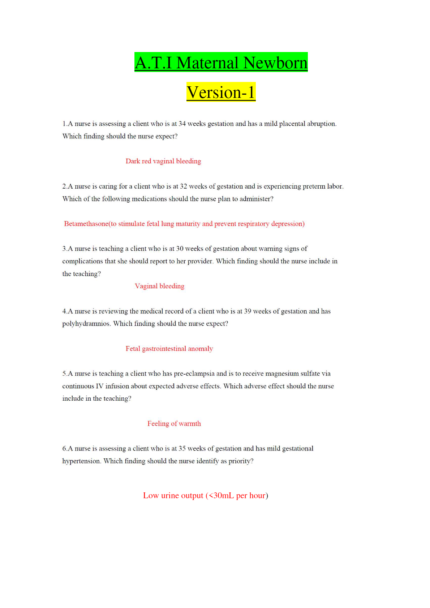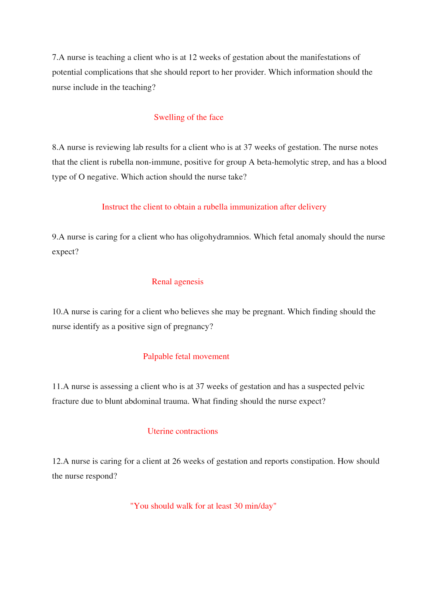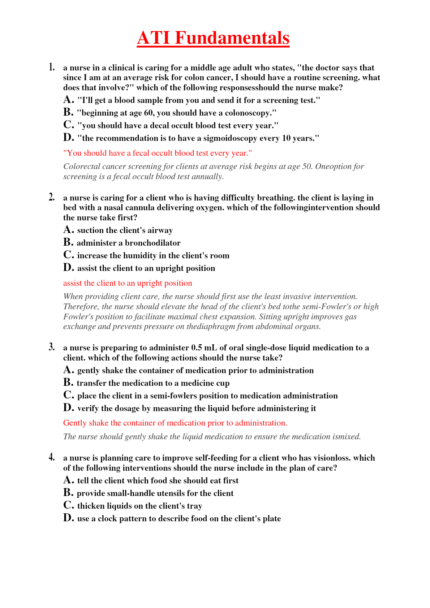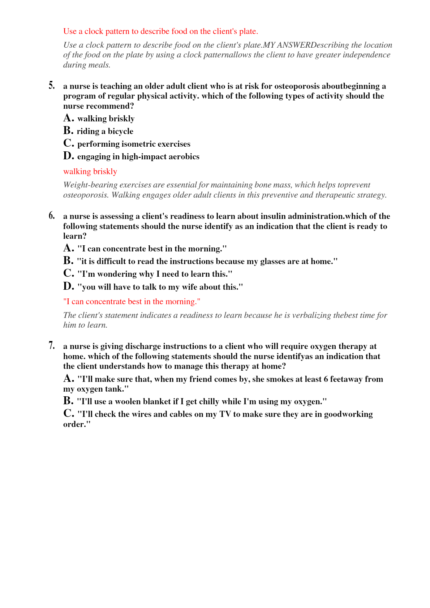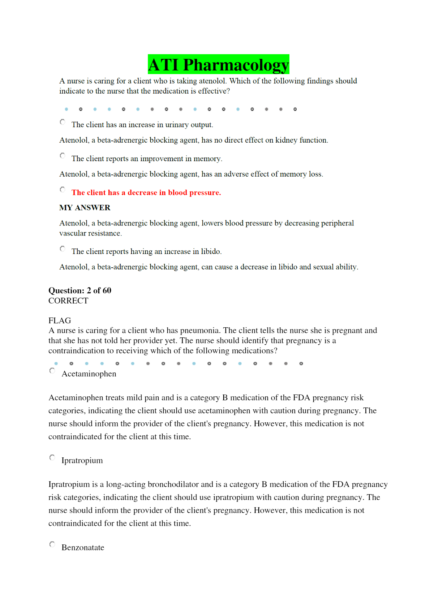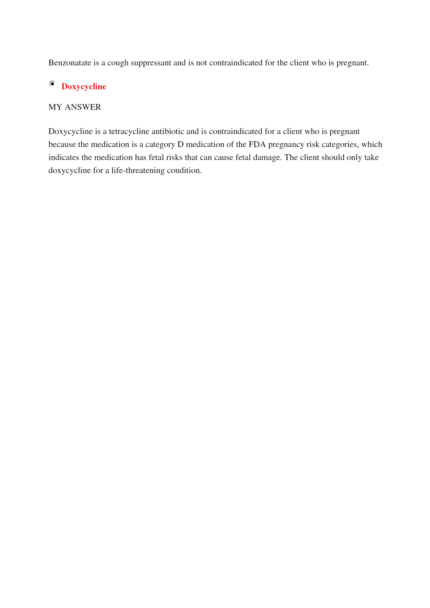ATI Mental Health Proctored Exam 2020 (8 Versions) 100% CORRECT COMPLETE DOCUMENTS
VERSION 1
ATI MENTAL HEALTH PROCTORED EXAM
1.) A nurse is providing teaching for a client who is scheduled to receive ECT
for the treatment of a major depressive disorder. Which of the following client
statements indicates an understanding of the teaching?
a. “It is common to treat depression with ECT before trying
medications.”
b. “I can have my depression cured if I receive a series of ECT
treatments.”
c. “I should receive ECT once a week for 6 weeks.”
d. “I will receive a muscle relaxant to protect me from injury during
ECT.”
2.) A charge nurse is discussing TMS with a newly licensed nurse. Which of the
following statements by the newly licensed nurse indicates an understanding
of the teaching?
a. “TMS is indicated for clients who have schizophrenia spectrum
disorders.”
b. “I will provide postanesthesia care following TMS.”
c. “TMS treatments usually last 5 to 10 minutes.”
d. “I will schedule the client for daily TMS treatments for the first
several weeks.”
3.) A nurse is assessing a client immediately following an ECT procedure.
Which of the following findings should the nurse expect? (Select all that
apply.)
a. Hypotension.
b. Paralytic ileus.
c. Memory loss.
d. Nausea.
e. Confusion.
4.) A nurse is leading a peer group discussion about the indications for ECT.
Which of the following indications should the nurse include in the
discussion?
a. Borderline personality disorder.
b. Acute withdrawal related to a substance use disorder.
c. Bipolar disorder with rapid cycling.
d. Dysphoric disorder.
5.) A nurse is planning care for a client following surgical implantation of a
VNS device. The nurse should plan to monitor for which of the following
adverse effects? (Select all that apply.)
a. Voice changes.
b. Seizure activity.
c. Disorientation.
d. Dysphagia.
e. Neck pain.
Chapter 16 Personality Disorders
1.) A nurse manager is discussing the care of a client who has a personality
disorder with a newly licensed nurse. Which of the following statements by
the newly licensed nurse indicates an understanding of the teaching?
a. “I can promote my client’s sense of control by establishing a
schedule.”
b. “I should encourage clients who have a schizoid personality disorder
to increase socialization.”
c. “I should practice limit-setting to help prevent client manipulation.”
d. “I should implement assertiveness training with clients who have
antisocial personality disorder.”
2.) A nurse is caring for a client who has avoidant personality disorder. Which
of the following statements is expected from a client who has this type of
personality disorder?
a. “I’m scared that you’re going to leave me.”
b. “I’ll go to group therapy if you’ll let me smoke.”
c. “I need to feel that everyone admires me.”
d. “I sometimes feel better if I cut myself.”
3.) A nurse is caring for a client who has borderline personality disorder. The
client says, “The nurse on the evening shift is always nice! You are the
meanest nurse ever!” The nurse should recognize the client’s statement as an
example of which of the following defense mechanisms?
a. Regression.
b. Splitting.
c. Undoing.
d. Identification.
4.) A nurse is assisting with a court-ordered evaluation of a client who has
antisocial personality disorder. Which of the following findings should the
nurse expect? (Select all that apply.)
a. Demonstrates extreme anxiety when placed in a social situation.
b. Has difficulty making even simple decisions.
c. Attempts to convince other clients to give him their belongings.
d. Becomes agitated if his personal area is not neat and orderly.
e. Blames others for his past and current problems.
5.) A charge nurse is preparing a staff education session on personality
disorders. Which of the following personality characteristics associated with
all of the personality disorders should the charge nurse include in the
teaching?
a. Difficulty in getting along with other members of a group.
b. Belief in the ability to become invisible during times of stress.
c. Display of defense mechanisms when routines are changed.
d. Claiming to be more important than other persons.
e. Difficulty understanding why it is inappropriate to have a personal
relationship with staff






